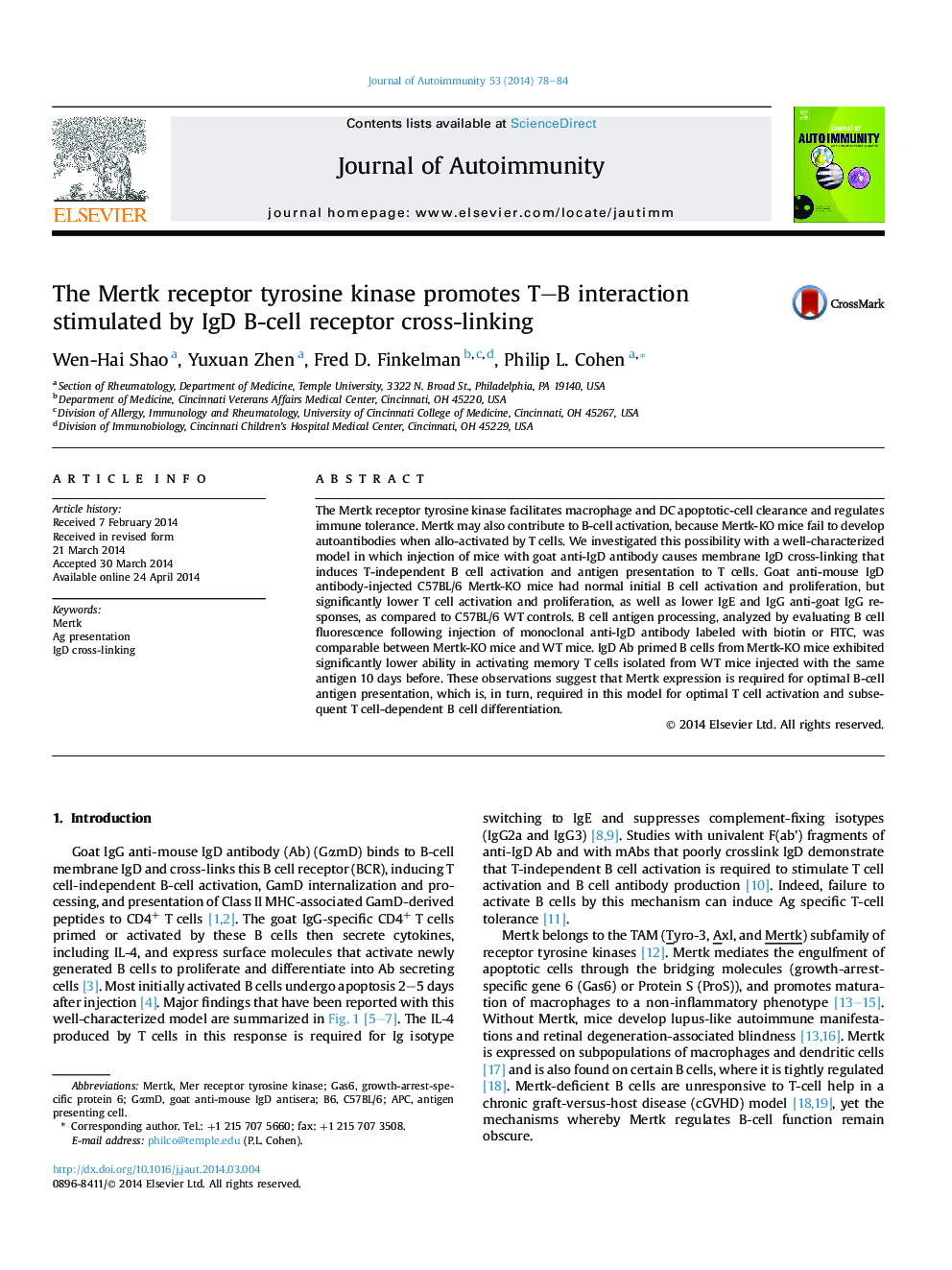| Article ID | Journal | Published Year | Pages | File Type |
|---|---|---|---|---|
| 3367754 | Journal of Autoimmunity | 2014 | 7 Pages |
•Mertk-KO mice exhibit reduced IgG and IgE responses to anti-mouse IgD.•Mertk expression is required for optimal T–B interaction after B-cell IgD crosslinking.•Mertk may modulate the immunological synapse during T–B interaction.
The Mertk receptor tyrosine kinase facilitates macrophage and DC apoptotic-cell clearance and regulates immune tolerance. Mertk may also contribute to B-cell activation, because Mertk-KO mice fail to develop autoantibodies when allo-activated by T cells. We investigated this possibility with a well-characterized model in which injection of mice with goat anti-IgD antibody causes membrane IgD cross-linking that induces T-independent B cell activation and antigen presentation to T cells. Goat anti-mouse IgD antibody-injected C57BL/6 Mertk-KO mice had normal initial B cell activation and proliferation, but significantly lower T cell activation and proliferation, as well as lower IgE and IgG anti-goat IgG responses, as compared to C57BL/6 WT controls. B cell antigen processing, analyzed by evaluating B cell fluorescence following injection of monoclonal anti-IgD antibody labeled with biotin or FITC, was comparable between Mertk-KO mice and WT mice. IgD Ab primed B cells from Mertk-KO mice exhibited significantly lower ability in activating memory T cells isolated from WT mice injected with the same antigen 10 days before. These observations suggest that Mertk expression is required for optimal B-cell antigen presentation, which is, in turn, required in this model for optimal T cell activation and subsequent T cell-dependent B cell differentiation.
